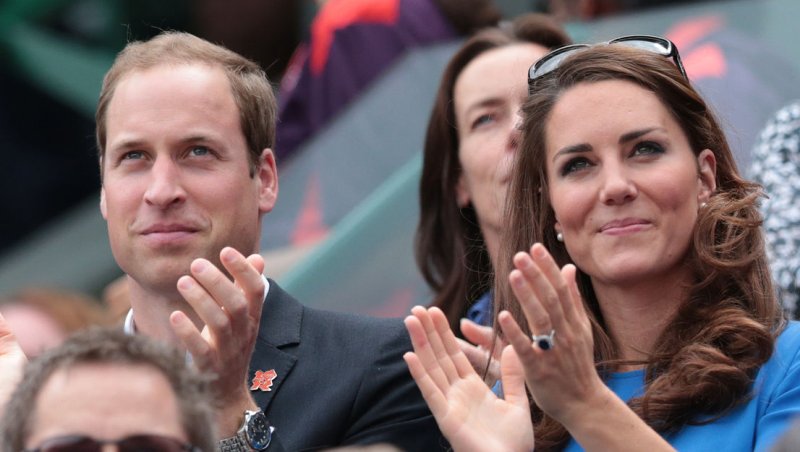1 of 12 | William and Kate, The Duke and Duchess of Cambridge. File/UPI/Hugo Philpott |
License Photo
British economists expect the birth of the prince or princess of Cambridge to herald a surge in the national economy.
The world's attention turned to a set of London hospital doors early Monday morning as Kate Middleton, the Duchess of Cambridge, entered the hospital's private wing in the early stages of labor.
But the excitement over the impending birth of the future monarch was not limited to royalists: A boost to retail sales, food and alcohol purchases and memorabilia was expected to be delivered to the economy along with the tiny royal.
"The impact on the U.K. economy is likely to be limited -- albeit overwhelmingly positive," said Howard Archer, the chief U.K. and European economist at IHS Global Insight. "At the margin, the royal birth may provide the economy with a temporary, small positive boost at a time when it seems to be increasingly moving in the right direction."
Retail sales could go up as much as £243 million ($372 million), while food and alcohol sales could top £87 million ($133 million) and royal memorabilia was expected to rake in £156 million ($239 million), according to the Centre for Retail Research.
"The most obvious support to the economy coming from the royal birth will be some boost to retail sales through people buying souvenirs and commemorative items, while there is also likely to be a small lift to alcohol sales as some people will want to toast the royal baby," Archer said.
The "Kate effect" -- a spike in purchases of any item of clothing worn by the duchess -- will likely extend to any baby items, such as strollers or onesies, similar to the royal infant's.
Victoria Clarke, an economist at Investec, cautioned that the baby bump-related economic bump could be short lived.
“Beyond the impact of memorabilia sales, you are then down to confidence and whether it lasts," Clarke said.
But she and Archer agree -- the "feel good factor" from the infant's arrival could contribute to an overall increase in consumer confidence, which could have a more long-term impact.
"At the end of the day what influences people the most is their perception of the state of the economy and the employment outlook," Archer said.







